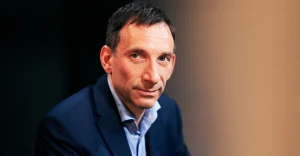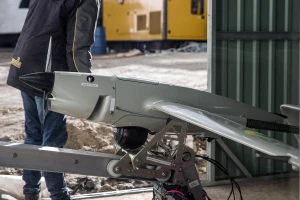
Trump’s sanctions against EU, negotiations on Ukraine
The main geopolitical battle of the modern world is not Ukraine's war—it’s a battle for the EU’s allegiance: China or the U.S.
Trump’s sanctions are simply accelerating the timeline. Moreover, they clearly indicate where Ukraine stands in his hierarchy of values.
1. The logic of “make America great again” involves several key factors:
- Maintaining the U.S. as the world’s leading military power.
- Preserving the American financial system as the dominant global system.
- Ensuring the U.S. remains the world’s top technological leader (with China as its main competitor).
- A new wave of industrialization in the U.S. (including infrastructure transformation and new technologies), which will be funded largely at the expense of America’s partners—particularly European manufacturers and the wealth of Gulf countries.
- A shift of power in the U.S. from financial elites to industrialists (with USAID representing the peak of this power structure).
- Values should return to their 20th-century role—serving geopolitical interests rather than forcing endless apologies.
2. Trump’s tariff strategy makes sense when viewed through this lens: minimal tariffs on Chinese goods aim to prevent major price spikes in the U.S. while partially correcting the trade deficit. Tariffs on Mexico serve as a warning to all American nations that the Monroe Doctrine is making a comeback—and no one will be there to save them. Note how quickly Panama caved in, with China remaining completely silent. Everyone saw that Beijing will not engage in trade wars—it will wait. After all, China is not yet ready for more active measures. It wants to see how things unfold in the next 6–12 months and whether Trump will collapse on his own.
"3. And now about the EU. Trump’s goal is simple—reverse the U.S. trade deficit and force Europeans to build factories in the U.S. in exchange for lower tariffs."
Moreover, given America’s trade deficit with China, it’s possible that Trump will push Europe itself to impose tariffs on Chinese goods—one of his key objectives. His leverage? NATO and the U.S. security guarantee against Russia. At the same time, Trump will not engage with the European Commission. He will negotiate directly with national governments and will court right-wing parties, pulling them away from Russia’s influence. This, in turn, could further fuel nationalism in Europe.
4. Now about Russia. Russia is an underdeveloped and unpredictable entity that threatens U.S. interests in two key ways: it supplies China with crucial resources and it partially controls North Korea, which in turn threatens the stability of key U.S. allies—Japan and South Korea. There’s another crucial factor: Ukraine’s situation will set a precedent for Taiwan—a reality the U.S. is factoring into its strategies.
On a broader level, Trump’s logic is clear: Russia must be separated from China. If Putin refuses to break away, then Putin must go. At this point, it seems that Ukraine’s war has been put on hold as the U.S. signals to Putin how it will “squeeze” him if he does not agree to terms acceptable to Trump. For Trump, three key objectives matter here: breaking OPEC+ and driving down global energy prices, while replacing Russian oil with supplies from other producers, severing Russia’s ties with North Korea, weakening Russia-China relations.
5. For Trump, Ukraine is just a speck on the map. That’s neither good nor bad—it’s just reality. As I’ve written before, the U.S. is demanding elections in Ukraine right now.
"We have two choices: refuse to hold elections, giving both Putin and Trump free rein or find a way to establish internal political rules and proceed with elections. Unfortunately, there are no good options."
But this is only part of the issue. The second, equally important part is that we must develop a unified national position on our red lines in any negotiations. Without that, we stand to lose much more.
6. Trump has fallen and risen at least three times in his life. He always plays big, and he’s not afraid of taking things to the limit. After the recent assassination attempt, I have a feeling he now sees himself as divinely chosen. That means he’s not just playing big—he’s going all in. And that’s the biggest hope for his opponents, both in the U.S. and worldwide. But the processes he has already set in motion—and the ones yet to come—cannot be stopped overnight. Even if Trump faces setbacks, the key trajectories he has initiated will not change.
7. Some of our so-called “experts” are already claiming that this is the end of globalization. That’s not just wrong—it’s ignorant. Trump isn’t canceling globalization—he’s rewriting its rules. And that’s a crucial difference.
About the author: Vadym Denysenko, political analyst.
The editorial board does not always share the views expressed in blog posts.
- News













































